

We mixed up 10 good questions here

10 questions to test your knowledge
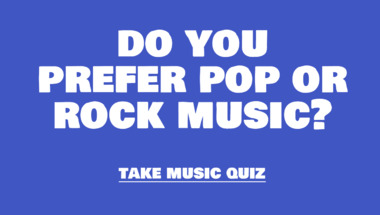
Trivia quiz for experts

Can you reach 3 out of 10 correct answers?

..ooOO 10 questions OOoo..

10 questions

10 questions to test your knowledge

How many songs do you know?

10 mixed questions

How many songs can you guess?
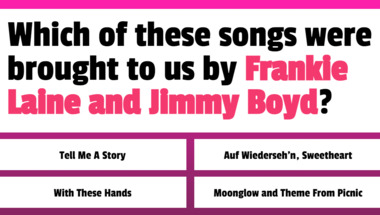
How many of them will you answer correctly?

10 genius questions lined up

10 mixed questions for you

10 mixed questions

How high can you score?

Trivia Ladder Test For Experts

10 tricky questions

10 questions to battle

How many correct will you get?

Here are 10 questions designed to assess your..

10 mixed general trivia questions

How many correct will you get?

10 Amazing Questions

10 random questions

10 mixed questions to challenge your knowledg..

How many correct answers will you get?

Score above 4/10 to beat it

Here are 10 thought-provoking queries.

How many of the songs will you get right?

How many correct will you get?

How's your trivia brain doing?

10 challenging questions for you
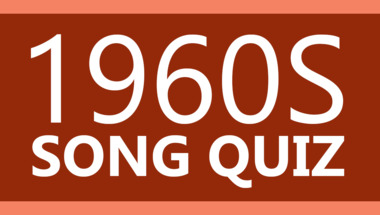
How many correct answers will you get?

10 mixed questions

How many of these old jobs do you remember?

10 easy to hard questions

Can you recall how many of these 10 slang wor..

10 Almost Impossible Questions

Can you answer questions regarding well-known..

10 questions to answer

How many correct will you get?

Let's see how smart you really are!

10 mixed up questions

10

10 mixed general trivia questions

10 questions for you to have fun with

10 questions covering a variety of topics

How high can you climb?

10 questions to test your knowledge

Are you smart enough for this one?

Can you score 7 or higher in this one?

How many correct will you get?

10 questions to test your knowledge

10 questions. 10 songs. How many will you rem..

Do you have it in you?

10 questions to test your knowledge

How will you do in this general knowledge qui..

How many correct answers can you get?

How many correct will you get?

10 Impossible Questions

10 questions shuffled into fun categories

How many correct will you get?

Question 9 and 10 will be quite the challenge

10 Impossible Questions

Target : score 3/10
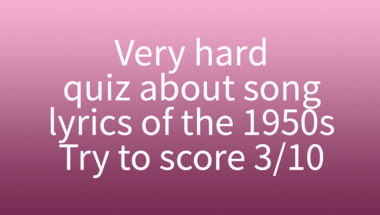
Let's see how smart you really are!

8 or more correct = grand master level!

10 mixed questions

10 Impossible Questions

10 artists to guess

10 mixed questions
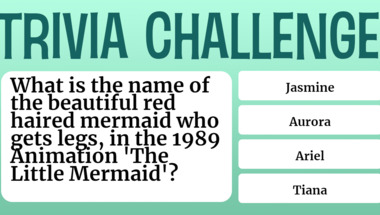
10 questions than even a monkey can answer

Let's see how smart you really are!

Can you score 8/10?

10 mixed up questions

How's your trivia brain doing?

We mixed up 10 good questions here

10 questions

Are you up for a quiz?

10 history quiz questions

Let me know your score in the comments

How high can you score?

How many songs do you know?
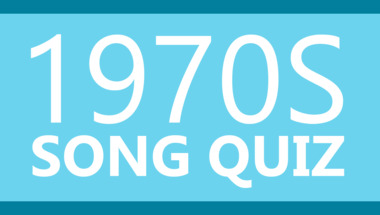
a 10 question quiz

How smart are you really?

Let me know your score in the comments
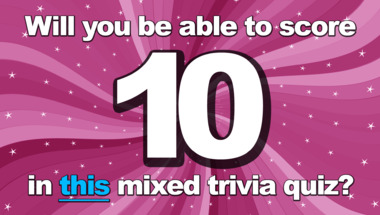
Share if you get more than 6 correct

Can you score higher than 4 out of 10?

Latin is not easy, so expect around 5 out of ..

Most people wont even get 7 out of 10 correct

10 questions

We bet you can't tell us who sang these 10 so..

10 mixed questions

10 thrilling questions

Are you a knowledge genius?

How deep does your knowledge go?

What will you remember?

Test your knowledge

10 mixed questions

10 thrilling questions about the world

10 mixed category questions
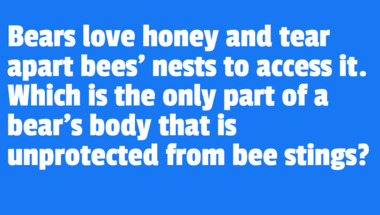
10 songs to guess

10 mixed up questions
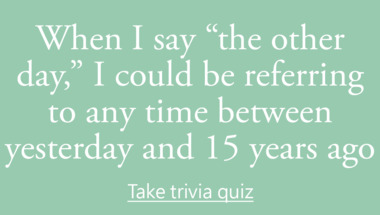
How many correct will you get?

10 questions lined up

10 challenging questions
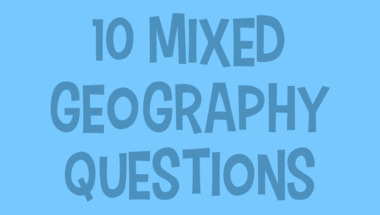
10 questions

10 questions to answer

10 mixed history questions

How many correct will you get?

10 questions

What do you know about the worlds capitals?

Let us know your score

Click here to take this quiz

10 good questions

10 questions to test your knowledge

What is the number of 60s songs that you will..

Are you smart enough for this one?

10 questions to test your knowledge

How many correct will you get?

The 1960s was a groundbreaking decade for music, with genres like rock, pop, soul, and R&B flourishing. Many songs from this era became timeless classics, influencing countless artists and shaping the sound of modern music. One fun way to revisit the magic of the '60s is through trivia questions that ask you to fill in the missing word from famous song titles. In this in-depth article, we’ll explore each of the ten trivia questions provided, discuss the likely answers, give some background about the songs and artists, and reflect on the impact these tunes had on the music landscape.
1. Which word is missing from this 60s song title?: (I Can't Get No) ____
Without a doubt, this question references one of the most iconic rock songs of all time: (I Can't Get No) Satisfaction by The Rolling Stones. The missing word is Satisfaction. Released in 1965, this song quickly became a worldwide hit and is widely recognized for its driving riff, written by Keith Richards, and its rebellious lyrics delivered by Mick Jagger. The song's message of frustration and yearning resonated with the youth of the era, making it an anthem for the counterculture movement.
Satisfaction not only topped the charts in the US and UK, but it also solidified The Rolling Stones' place in the pantheon of rock legends. Its influence can still be heard in modern rock music, and it frequently appears on lists of the greatest songs of all time. The track’s raw energy and distinctive sound helped define the sound of the '60s and paved the way for the harder rock styles that would emerge in the following decades.
2. Which word is missing from this 60s song title?: My ____ World Ended
This title is from the soulful classic My Whole World Ended (The Moment You Left Me) by David Ruffin. The missing word is Whole. Released in 1969, this song marked Ruffin's debut as a solo artist after leaving The Temptations. The track's powerful vocals and emotive lyrics are a testament to Ruffin's talent and ability to convey deep feelings of loss and heartbreak.
David Ruffin’s solo career may not have reached the same commercial heights as his work with The Temptations, but My Whole World Ended remains one of his signature songs. The track’s lush arrangement and heartfelt delivery make it a standout example of Motown soul, capturing the emotional intensity that defined much of the era’s music.
3. Which word is missing from this 60s song title?: A Walk in the Black ____
This question refers to the song A Walk in the Black Forest, with the missing word being Forest. Originally titled Eine Schwarzwaldfahrt, this instrumental piece was composed and performed by German musician Horst Jankowski. It became a surprise hit in the United States in 1965, reaching high positions on the charts.
The song’s gentle, whimsical melody evokes the feeling of a stroll through Germany’s famous Black Forest region. Its success helped popularize easy listening and instrumental music in the 1960s, proving that songs without lyrics could still capture the imagination of listeners worldwide.
4. Which word is missing from this 60s song title?: ____ Out of My Head
The likely answer here is Can't, from the song Can't Get You Out of My Head. However, since Kylie Minogue’s hit by that name is from the 2000s, the 1960s song that fits is Breakin' Out of My Head or more appropriately, Can't Take My Eyes Off You (which includes the lyric Can't get you out of my head), but for the exact title mentioned, the answer is most likely Breakin' or Can't. Given the trivia context, it's probably Can't.
Many songs in the '60s dealt with the theme of obsession and longing, with lyrics about someone being “out of your head” or impossible to forget. These themes continue to be relevant in modern pop music, showing the lasting influence of the '60s songwriting approach.
5. Which word is missing from this 60s song title?: ____ Now That I've Found You
The answer is Baby, from the song Baby Now That I've Found You by The Foundations. Released in 1967, this upbeat track became a major hit in the UK and US. The Foundations were notable for being one of the first multiracial bands in the UK, and their music blended soul, pop, and R&B influences.
Baby Now That I've Found You is characterized by its catchy melody, energetic horn section, and heartfelt vocals. The song’s success helped pave the way for other soul-influenced British bands and remains a favorite among fans of classic pop and soul.
6. Which word is missing from this 60s song title?: I Can't Help ____
This is a reference to the Elvis Presley classic I Can't Help Falling in Love. The missing word is Falling. Originally featured in the 1961 film Blue Hawaii, the song quickly became one of Presley’s most beloved ballads. Its gentle melody and romantic lyrics have made it a popular choice at weddings and special occasions for decades.
I Can't Help Falling in Love has been covered by numerous artists across a wide range of genres, further cementing its status as a timeless love song. Its enduring popularity is a testament to the power of simple, heartfelt songwriting and Presley's unmatched vocal delivery.
7. Which word is missing from this 60s song title?: ____ Break the Heart That Loves You
The answer here is Don't, from the song Don't Break the Heart That Loves You by Connie Francis. Released in 1962, this song showcases Francis’s emotional vocal style and knack for delivering poignant ballads. The song tells the story of a woman pleading with her lover not to hurt her, a theme that resonated with many listeners at the time.
Connie Francis was one of the most successful female vocalists of the late '50s and early '60s, known for her ability to convey vulnerability and emotion in her music. Don't Break the Heart That Loves You is a prime example of her talent and has become a classic in the genre of pop ballads.
8. Which word is missing from this 60s song title?: Hold Me, ____ Me, Kiss Me
This title refers to the song Hold Me, Thrill Me, Kiss Me, with the missing word being Thrill. Originally recorded by Karen Chandler in the 1950s, the most famous version was released by Mel Carter in 1965. The song is a lush romantic ballad, expressing a desire for deep emotional connection and affection.
Hold Me, Thrill Me, Kiss Me became a staple at dances and proms throughout the decade, and its enduring popularity led to covers by artists such as Gloria Estefan. The song’s timeless melody and heartfelt lyrics continue to evoke romance and nostalgia for the era.
9. Which word is missing from this 60s song title?: ____ and Swim
The missing word is Twist, from the song Twist and Swim. This title likely refers to Twist and Shout, a song made famous by The Beatles, but the Swim was another popular dance craze song and the combination Twist and Swim appears in several versions by various artists in the early '60s. The early 1960s saw the emergence of numerous dance crazes, including the Twist, the Swim, the Mashed Potato, and more.
Songs that referenced popular dances were often created to encourage people to get up and move on the dance floor. The Twist, in particular, was a worldwide phenomenon, largely thanks to Chubby Checker. The success of these dance songs helped make the early '60s a particularly lively and energetic period in popular music.
10. Which word is missing from this 60s song title?: Sink the ____
The answer to this question is Bismarck, referencing the song Sink the Bismarck by Johnny Horton. Released in 1960, this song tells the story of the pursuit and sinking of the German battleship Bismarck during World War II. Johnny Horton was known for his historical ballads, and Sink the Bismarck is one of his best-known songs.
The song combines historical storytelling with a catchy, upbeat tune, making it both educational and entertaining. Sink the Bismarck stands as a unique example of how popular music can bring historical events to life and make them accessible to a broad audience.
Conclusion
These ten trivia questions provide a fascinating glimpse into the rich tapestry of 1960s music. From rock anthems and soulful ballads to dance crazes and historical narratives, the decade offered an incredible variety of sounds and stories. Whether you’re a trivia buff, a music lover, or just someone looking for a nostalgic trip down memory lane, exploring these song titles—and the artists behind them—offers a rewarding journey through one of the most creative periods in music history.
We hope this deep dive into 1960s song titles sparks your curiosity and inspires you to listen to some of these unforgettable tracks. The music of the '60s continues to resonate today, proving that great songs truly are timeless.